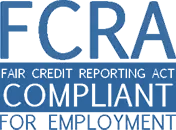Estate planning is a meticulous process that involves organizing one’s financial affairs to ensure a smooth transition of assets to heirs and beneficiaries. An essential component of this process is conducting thorough asset searches. Let’s explore the significance of asset searches in estate planning, the methods employed to uncover financial details, and the pivotal role these searches play in creating a comprehensive and well-informed estate plan.
Understanding Estate Planning and Asset Searches
Estate planning goes beyond the simple drafting of a will. It is a comprehensive strategy aimed at preserving, managing, and distributing assets in accordance with an individual’s wishes while minimizing tax liabilities and avoiding potential disputes among heirs. An integral aspect of effective estate planning is conducting asset searches to create an accurate inventory of one’s financial portfolio.
Why Asset Searches Matter
Asset searches ensure that no valuable assets are overlooked during the estate planning process.
Completeness of Estate Inventory: Real estate, financial accounts, investments, business interests, and personal property must all be identified and accounted for.
Debt Settlement: Uncovering liabilities is just as crucial as identifying assets. Outstanding debts, mortgages, and other financial obligations should be taken into account to avoid complications for heirs.
Fair Distribution: A thorough understanding of the estate’s assets allows for a fair and equitable distribution among beneficiaries, preventing potential disputes and legal challenges.
Tax Planning: Proper asset searches aid in identifying potential tax implications associated with the estate. This knowledge is essential for developing strategies to minimize tax liabilities and maximize the value passed on to beneficiaries.
Methods of Asset Searches in Estate Planning
Financial Statements and Documents: Reviewing financial statements, including bank statements, investment portfolios, and retirement account statements, provides a foundational understanding of an individual’s financial standing.
Real Estate Records: Examining property records, titles, and deeds helps identify real estate holdings, mortgages, and any encumbrances on properties.
Business Interests: For individuals with business interests, asset searches involve a thorough examination of business financial statements, ownership records, and partnership agreements.
Public Records and Filings: Accessing public records, including court filings, bankruptcy records, and UCC filings, can reveal additional financial information that may impact the estate.
Tax Returns: Past tax returns provide a comprehensive overview of income sources, investments, and potential deductions. Analyzing tax returns is a key step in understanding the financial landscape.
Insurance Policies: Reviewing life insurance policies, annuities, and other insurance documents is crucial for assessing the financial protection available for heirs and beneficiaries.
Digital Assets: Estate planners must consider digital assets such as cryptocurrency, online accounts, and intellectual property. Accessing and accounting for these assets is part of a modern asset search.
The Role of Professionals in Asset Searches for Estate Planning
Estate Planning Attorneys: Attorneys specializing in estate planning play a central role in guiding individuals through the asset search process. They help interpret legal documents, navigate complex financial structures, and ensure compliance with relevant laws and regulations.
Financial Advisors: Financial professionals provide valuable insights into investment portfolios, retirement accounts, and other financial instruments. Their expertise aids in creating a comprehensive plan that aligns with the individual’s financial goals.
Forensic Accountants: In cases where there is suspicion of undisclosed assets or financial irregularities, forensic accountants can be engaged to conduct a detailed examination and uncover hidden assets.
Private Investigators: In situations where information is challenging to obtain through traditional means, private investigators may be employed to conduct discreet asset searches.

The Intersection of Privacy and Legality
While asset searches are integral to effective estate planning, it is essential to navigate this process with respect for privacy and within the bounds of the law. Intrusive or illegal methods, such as unauthorized access to financial accounts or hacking, are not only ethically questionable but can also lead to legal consequences.
Legal and Ethical Considerations
Consent and Authorization: Individuals conducting asset searches must obtain proper consent and authorization from the estate holder or their legal representatives.
Compliance with Laws: Asset searches must adhere to relevant privacy laws, including the Gramm-Leach-Bliley Act (GLBA) and the Right to Financial Privacy Act (RFPA), among others.
Confidentiality: Professionals involved in the asset search process must maintain strict confidentiality to safeguard the privacy of the estate holder and their financial information.
In the intricate web of estate planning, asset searches stand as a crucial pillar supporting the creation of a well-informed and comprehensive plan. By uncovering and taking a much larger look at financial details, addressing potential liabilities, and navigating the legal landscape with integrity, individuals can ensure that their financial legacies are preserved and distributed according to their wishes. Collaborating with professionals, maintaining ethical standards, and respecting privacy are fundamental principles that contribute to the effectiveness and legality of asset searches in the realm of estate planning.










